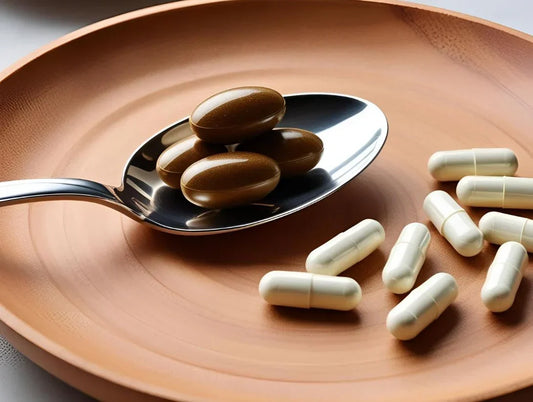In the world of supplements, CoQ10 and quercetin are often mentioned for their antioxidant and anti-aging properties. However, their similar benefits and overlapping uses can lead to confusion: Is CoQ10 quercetin, or are they entirely different compounds? Understanding the distinctions between these two powerful substances is crucial for making informed decisions about your health. This article explores their unique properties, benefits, and how they can complement each other in your wellness routine.
Is CoQ10 Quercetin?
No, CoQ10 (coenzyme Q10) and quercetin are not the same. CoQ10 is a fat-soluble compound that plays a vital role in cellular energy production, while quercetin is a flavonoid antioxidant found in plants. Though both support mitochondrial function and reduce oxidative stress, they have distinct chemical structures, mechanisms of action, and health applications.
What Is CoQ10?
CoQ10, also known as ubiquinone, is a naturally occurring compound in the body that is essential for energy production in mitochondria. It also acts as a potent antioxidant, protecting cells from oxidative damage.
Key Benefits of CoQ10
- Boosts Cellular Energy: Supports ATP production, vital for heart, brain, and muscle function.
- Antioxidant Protection: Neutralizes free radicals, reducing oxidative stress.
- Heart Health: Improves endothelial function and reduces blood pressure.
- Anti-Aging: Levels decline with age; supplementation may slow age-related decline.
Sources of CoQ10
- Dietary: Found in organ meats, fatty fish, and whole grains.
- Supplements: Available as ubiquinone or ubiquinol (active form).
What Is Quercetin?
Quercetin is a plant-derived flavonoid with powerful antioxidant and anti-inflammatory properties. It is found in many fruits, vegetables, and grains.
Key Benefits of Quercetin
- Anti-Inflammatory: Reduces inflammation by inhibiting pro-inflammatory enzymes.
- Antioxidant: Scavenges free radicals and boosts glutathione levels.
- Immune Support: Enhances immune function and reduces allergy symptoms.
- Cardiovascular Health: Improves blood vessel function and reduces LDL oxidation.
Sources of Quercetin
- Dietary: Apples, onions, berries, and leafy greens.
- Supplements: Often combined with bromelain for enhanced absorption.
Key Differences Between CoQ10 and Quercetin
1. Chemical Structure
- CoQ10: A benzoquinone compound with a long isoprenoid tail.
- Quercetin: A flavonoid with a polyphenolic structure.
2. Mechanism of Action
- CoQ10: Primarily involved in the electron transport chain for ATP synthesis.
- Quercetin: Acts as a free radical scavenger and modulates inflammatory pathways.
3. Bioavailability
- CoQ10: Fat-soluble; best absorbed with dietary fats.
- Quercetin: Water-soluble; absorption improves with piperine or bromelain.
4. Primary Uses
- CoQ10: Focused on energy production and cardiovascular health.
- Quercetin: Targeted at inflammation, immunity, and allergy relief.
Can CoQ10 and Quercetin Be Taken Together?
Yes, CoQ10 and quercetin can be taken together, and they may even have synergistic effects. Combining them can enhance mitochondrial function, reduce oxidative stress, and support overall health.
Synergistic Benefits
- Enhanced Antioxidant Activity: Quercetin boosts glutathione, while CoQ10 directly neutralizes free radicals.
- Improved Mitochondrial Function: CoQ10 supports ATP production, and quercetin reduces mitochondrial oxidative damage.
- Cardiovascular Support: Both improve endothelial function and reduce inflammation.
Recommended Dosages
- CoQ10: 100–300 mg/day, taken with a fatty meal.
- Quercetin: 500–1,000 mg/day, ideally with bromelain or piperine.
When to Choose CoQ10 Over Quercetin
CoQ10 may be more beneficial if you:
- Experience fatigue or low energy levels.
- Have cardiovascular issues like heart failure or hypertension.
- Are taking statins, which deplete CoQ10 levels.
When to Choose Quercetin Over CoQ10
Quercetin may be more suitable if you:
- Need immune support or allergy relief.
- Have chronic inflammation or autoimmune conditions.
- Are looking for a general antioxidant boost.
Potential Side Effects and Interactions
CoQ10
- Mild gastrointestinal discomfort.
- May interact with blood thinners and blood pressure medications.
Quercetin
- Rare headaches or tingling sensations.
- May interact with antibiotics, chemotherapy, or blood thinners.
Debunking Myths About CoQ10 and Quercetin
Myth 1: “They Are Interchangeable”
False. While both are antioxidants, their mechanisms and primary benefits differ significantly.
Myth 2: “More Is Always Better”
Exceeding recommended dosages can lead to side effects without added benefits.
Myth 3: “They Work Instantly”
Both require consistent use (4–12 weeks) to see noticeable effects.
Choosing the Right Supplement
When selecting CoQ10 or quercetin supplements, consider:
- Form: Ubiquinol for CoQ10; quercetin with bromelain or piperine.
- Purity: Look for third-party testing and non-GMO labels.
- Dosage: Match your health goals and consult a healthcare provider.
Conclusion
CoQ10 and quercetin are distinct compounds with unique benefits, though they share some overlapping roles in supporting health. While CoQ10 excels in energy production and cardiovascular health, quercetin shines as an anti-inflammatory and immune-boosting antioxidant. Together, they can provide comprehensive support for mitochondrial function and overall wellness. Always consult a healthcare provider to tailor supplementation to your specific needs and ensure safe, effective use.
Move Better, Feel Stronger, Live Longer
Don’t let inflammation, sluggish recovery, or aging hold you back. Whether you're an active senior wanting to keep moving, an immune-conscious individual looking for extra support, or an athlete recovering from tough workouts, Quercetin + Fisetin helps your body function at its best.
This powerful duo works at the cellular level to promote resilience, fight inflammation, and support longevity—so you can keep doing what you love.
Stay strong, stay active, and take control of your health today!
Get Quercetin + Fisetin Now!
Quercetin + Fisetin
Quercetin and Fisetin help manage 'zombie' senescent cell burden and support cellular rejuvenation.*
Read more:


